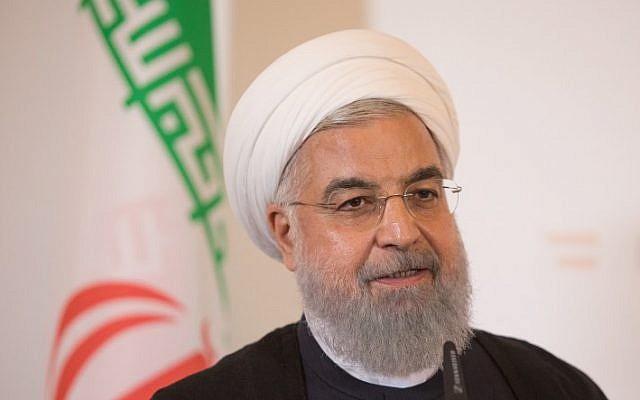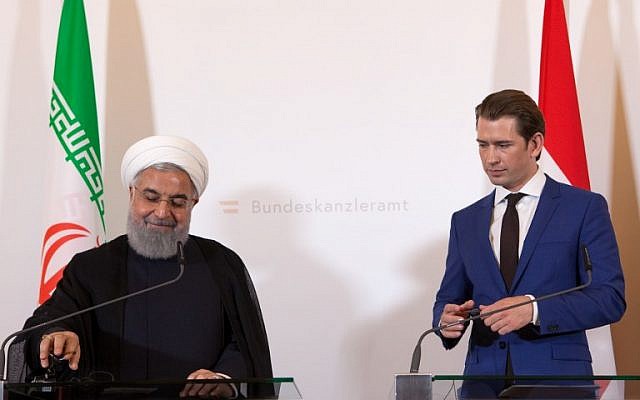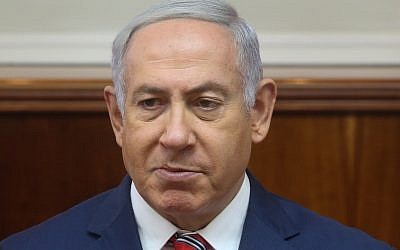Ahead of Vienna summit, Rouhani tells French leader package proposed by EU nations ‘does not meet all our demands’

Iranian President Hassan Rouhani said Thursday that a European offer of economic measures to counter the effects of the United States abandoning the nuclear deal does not go far enough, state news agency IRNA reported.
Rouhani told French President Emmanuel Macron in a phone call that the package “does not meet all our demands,” reported the news agency on the eve of ministerial talks in Vienna.
The Iranian leader said he hoped the matter could be addressed at the meeting which comes two months after US President Donald Trump walked away from the landmark 2015 agreement.
Since Trump’s shock move in May, Washington has warned other countries to end trade and investment in the Islamic republic and stop buying its oil from early November or face punitive measures.
The other signatories — Britain, France, Germany, China and Russia — have vowed to stay in the accord but appear powerless to stop their companies pulling out of Iran for fear of US penalties.
The Vienna meeting Friday will discuss the European package of economic measures that aims to persuade Iran to stick with the deal, a European diplomat said without specifying the measures on offer.
The five powers’ top diplomats were due to join Iranian Foreign Minister Mohammad Javad Zarif from 0900 GMT in the Austrian capital, where the accord was signed in 2015.
Iranians have complained that the hoped-for rise in foreign investment and trade after the deal has not materialized.

Since Trump’s announcement, Iran’s rial currency has fallen, prices have risen and the country has been hit by street protests and strikes.
Rouhani, who signed the nuclear deal, has at times been attacked at home by ultra-conservatives, who have denounced his willingness to talk to the West and accused him of hurting the economy.
In recent days, however, he has seen a surge of support hardline critics, after he called Israel “illegitimate” during his European tour.
Rouhani warned Wednesday that Iran could reduce its cooperation with the United Nations’ nuclear watchdog if the nuclear deal falls apart.

“The responsibility for the change of Iran’s cooperation level with… falls on those who have created this new situation,” he said, according to the Reuters news agency.
Iran has warned it is ready to resume uranium enrichment to 20 percent — above the level permitted in the deal — “within days” if the agreement falls apart.
Israeli Prime Minister Benjamin Netanyahu on Wednesday said Rouhani will fail in his bid to stave off American sanctions.
The prime minister accused Iran of “hypocrisy” in seeking European support, even as an Iranian diplomat was implicated in planning an alleged bomb plot against opposition exiles in Paris.
After the plot was uncovered, Netanyahu urged European countries to call off planned talks with Iran over preserving the nuclear deal.
“Stop financing the terrorist regime that is financing terrorism against you on your soil,” he said. “Enough with the policy of appeasement and weakness regarding Iran.”
As reported by The Times of Israel
